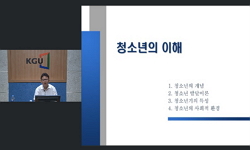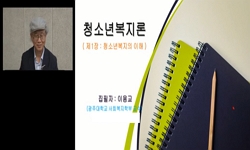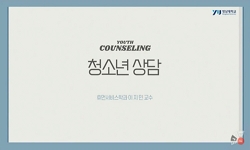연구목적 : 일반 청소년의 문제행동(내재화 문제, 외현화 문제)을 평가하고, 그들을 정상 집단과 문제행동 집단으로 나누어 집단간에 부모 각각의 양육행동이 어떠한 차이를 보이는지 알아...
http://chineseinput.net/에서 pinyin(병음)방식으로 중국어를 변환할 수 있습니다.
변환된 중국어를 복사하여 사용하시면 됩니다.
- 中文 을 입력하시려면 zhongwen을 입력하시고 space를누르시면됩니다.
- 北京 을 입력하시려면 beijing을 입력하시고 space를 누르시면 됩니다.
https://www.riss.kr/link?id=A3002385
- 저자
- 발행기관
- 학술지명
- 권호사항
-
발행연도
2001
-
작성언어
Korean
- 주제어
-
KDC
513.85
-
자료형태
학술저널
- 발행기관 URL
-
수록면
605-615(11쪽)
-
KCI 피인용횟수
68
- 제공처
-
0
상세조회 -
0
다운로드
부가정보
국문 초록 (Abstract)
일반 청소년의 문제행동(내재화 문제, 외현화 문제)을 평가하고, 그들을 정상 집단과 문제행동 집단으로 나누어 집단간에 부모 각각의 양육행동이 어떠한 차이를 보이는지 알아보고자 한다.
방 법 :
서울 소재의 일반 고등학교 학생 792명을 대상으로 부모 양육행동 척도와 K-YSR을 실시하여 청소년이 지각하는 부모의 양육행동과 청소년의 문제행동을 평가하였다. 부모의 양육행동과 청소년의 문제행동과의 상관관계를 분석하였다. 학생들이 보고한 각 문제행동을 상/하위 25% tile을 기준으로 정상 집단과 문제행동 집단으로 나누어 부모의 양육행도의 차이를 분석하였다.
결 과 :
다음과 같다.
1) 부모의 애정, 합리적 설명, 감독의 긍정적인 양육행동은 대부분의 청소년 문제행동들과 유의한 부적 상관을 보였다. 반면에 학대, 과잉간섭, 과잉기대, 방임, 비일관성이 부정적인 양육행동은 문제행동들과 유의한 정적 상관이 있었다.
2)내재화 문제를 보이는 청소년들은 정상 집단에 비해 부모로부터 학대, 과잉간섭, 과잉기대, 방임, 비일관성의 양육행동을 유의하게 더 많이 받았고, 반면에 애정을 유의하게 더 적게 받았다고 지각하고 있었다. 외현화문제를 보이는 청소년들은 정상집단의 청소년들에 비해 부모로부터 학대, 과잉간섭, 과잉기대, 방임, 비일관성의 양육행동을 유의하게 더 많이 받았고, 반면에 감독을 유의하게 더 적게 받았다고 지각하고 있었다.
3) 내재화 및 외현화 문제를 모두 보이는 집단이 내재화 문제만 보이는 집단과 외현화 문제만 보이는 집단에 비해서 양쪽 부모로부터 유의하게 더 많은 과잉간섭을 받을 것으로 지각하고 있었다. 또한, 내재화-외현화 집단과 내재화 집단은 외현화 집단에 비해서 어머니로부터 유의하게 더 적은 애정과 더 많은 방임을 받고 있고, 아버지로부터 유의하게 더 많은 학대를 받은 것으로 지각하고 있었다.
결 론 :
이상의 결과로 미루어 볼 때, 청소녕이 지각한 부모의 학대, 과잉간섭, 과잉기대, 방임, 비일관성의 양육행동은 청소년의 내재화 및 외현화 문제 모두와 유의한 연관이 있고, 반면에 부모의 애정, 감독, 합리적 설명의 양육행동은 다양한 청소년기 문제행동을 줄일 수 있음을 시사하고 있다.
연구목적 :
일반 청소년의 문제행동(내재화 문제, 외현화 문제)을 평가하고, 그들을 정상 집단과 문제행동 집단으로 나누어 집단간에 부모 각각의 양육행동이 어떠한 차이를 보이는지 알아보고자 한다.
방 법 :
서울 소재의 일반 고등학교 학생 792명을 대상으로 부모 양육행동 척도와 K-YSR을 실시하여 청소년이 지각하는 부모의 양육행동과 청소년의 문제행동을 평가하였다. 부모의 양육행동과 청소년의 문제행동과의 상관관계를 분석하였다. 학생들이 보고한 각 문제행동을 상/하위 25% tile을 기준으로 정상 집단과 문제행동 집단으로 나누어 부모의 양육행도의 차이를 분석하였다.
결 과 :
다음과 같다.
1) 부모의 애정, 합리적 설명, 감독의 긍정적인 양육행동은 대부분의 청소년 문제행동들과 유의한 부적 상관을 보였다. 반면에 학대, 과잉간섭, 과잉기대, 방임, 비일관성이 부정적인 양육행동은 문제행동들과 유의한 정적 상관이 있었다.
2)내재화 문제를 보이는 청소년들은 정상 집단에 비해 부모로부터 학대, 과잉간섭, 과잉기대, 방임, 비일관성의 양육행동을 유의하게 더 많이 받았고, 반면에 애정을 유의하게 더 적게 받았다고 지각하고 있었다. 외현화문제를 보이는 청소년들은 정상집단의 청소년들에 비해 부모로부터 학대, 과잉간섭, 과잉기대, 방임, 비일관성의 양육행동을 유의하게 더 많이 받았고, 반면에 감독을 유의하게 더 적게 받았다고 지각하고 있었다.
3) 내재화 및 외현화 문제를 모두 보이는 집단이 내재화 문제만 보이는 집단과 외현화 문제만 보이는 집단에 비해서 양쪽 부모로부터 유의하게 더 많은 과잉간섭을 받을 것으로 지각하고 있었다. 또한, 내재화-외현화 집단과 내재화 집단은 외현화 집단에 비해서 어머니로부터 유의하게 더 적은 애정과 더 많은 방임을 받고 있고, 아버지로부터 유의하게 더 많은 학대를 받은 것으로 지각하고 있었다.
결 론 :
이상의 결과로 미루어 볼 때, 청소녕이 지각한 부모의 학대, 과잉간섭, 과잉기대, 방임, 비일관성의 양육행동은 청소년의 내재화 및 외현화 문제 모두와 유의한 연관이 있고, 반면에 부모의 애정, 감독, 합리적 설명의 양육행동은 다양한 청소년기 문제행동을 줄일 수 있음을 시사하고 있다.
다국어 초록 (Multilingual Abstract)
Methods : The subjects of this study were 792 high school students in Seoul. We administered 'parenting behavior Inventory' and Korean version of Youth Self-Report(K-YSR) to the subjects in order to evaluate the parenting behaviors perceived by adolescents and the problem behaviors of adolescents. We analzed the relationship between parenting behaviors and problem behaviors. We classified the subjects into problem behavior groups(internalizing group, externalizing group, internalizing-externalizing group) and a non-problem behavior(normal) group. We studied the differences of parenting behaviors among the groups.
Results : The results are as follows.
1) There were significant negative correlations between the positive parenting behaviors such as affection, reasoning, and monitoring and the problem behaviors of adolescents. By contrast, there were significant positive correlations between the negative parenting behaviors such as physical abuse, intrusiveness, over-expectation, neglect, and inconsistency and the problem behaviors of adolescents.
2) Adolescents of the internalizing group perceived significantly more parental abuse, intrusiveness, over-expectation, neglect, and inconsistency than those of normal group. Meanwhile, they perceived significantly less affection than normal adolescents. Adolescents of the externalizing group also perceived significantly more parental abuse, intrusiveness, over-expectation, neglect, and inconsistency than those of normal group. Also, they perceived significantly less monitoring than normal adolescents.
3) Adolescents of the internalizing-externalizing group perceived significantly more intrusiveness from both parents than those of either the internalizing or the externalizing groups. Adolescents of the internalizing-externalizing group perceived significantly less affection and more neglect from their mothers than those of the internalizing of the externalizing groups. In addition, adolescents of the internalizing-externalizing group perceived significantly more physical abuse from their fathers than those of the internalizing or the externalizing groups.
Conclusion : Parenting behaviors such as abuse, intrusiveness, over-expectation, neglect, and inconsistency are associated with both internalizing and externalizing problems. In contrast, our results suggest that parenting behaviors such as affection, monitoring, and reasoning might decrease the various problem behaviors of adolescents.
Objectives : The purpose of this study is to evaluate the problem behaviors of adolescents and to discriminate between parenting behaviors of problem behavior groups and those of non-problem behavior group. Methods : The subjects of this study were 7...
Objectives : The purpose of this study is to evaluate the problem behaviors of adolescents and to discriminate between parenting behaviors of problem behavior groups and those of non-problem behavior group.
Methods : The subjects of this study were 792 high school students in Seoul. We administered 'parenting behavior Inventory' and Korean version of Youth Self-Report(K-YSR) to the subjects in order to evaluate the parenting behaviors perceived by adolescents and the problem behaviors of adolescents. We analzed the relationship between parenting behaviors and problem behaviors. We classified the subjects into problem behavior groups(internalizing group, externalizing group, internalizing-externalizing group) and a non-problem behavior(normal) group. We studied the differences of parenting behaviors among the groups.
Results : The results are as follows.
1) There were significant negative correlations between the positive parenting behaviors such as affection, reasoning, and monitoring and the problem behaviors of adolescents. By contrast, there were significant positive correlations between the negative parenting behaviors such as physical abuse, intrusiveness, over-expectation, neglect, and inconsistency and the problem behaviors of adolescents.
2) Adolescents of the internalizing group perceived significantly more parental abuse, intrusiveness, over-expectation, neglect, and inconsistency than those of normal group. Meanwhile, they perceived significantly less affection than normal adolescents. Adolescents of the externalizing group also perceived significantly more parental abuse, intrusiveness, over-expectation, neglect, and inconsistency than those of normal group. Also, they perceived significantly less monitoring than normal adolescents.
3) Adolescents of the internalizing-externalizing group perceived significantly more intrusiveness from both parents than those of either the internalizing or the externalizing groups. Adolescents of the internalizing-externalizing group perceived significantly less affection and more neglect from their mothers than those of the internalizing of the externalizing groups. In addition, adolescents of the internalizing-externalizing group perceived significantly more physical abuse from their fathers than those of the internalizing or the externalizing groups.
Conclusion : Parenting behaviors such as abuse, intrusiveness, over-expectation, neglect, and inconsistency are associated with both internalizing and externalizing problems. In contrast, our results suggest that parenting behaviors such as affection, monitoring, and reasoning might decrease the various problem behaviors of adolescents.
목차 (Table of Contents)
- 서 론
- 방 법
- 1.연구대상
- 2.연구방법
- 결 과
- 서 론
- 방 법
- 1.연구대상
- 2.연구방법
- 결 과
- 1.부모의 양육행동과 문제행동과의 상관
- 2.성별과 내재화 문제 및 외현화 문제 유무에 따른 부모 양육행동의 차이
- 3.문제집단간의 부모양육행동의 차이
- 4.내재화 문제 및 외현화 문제와 부모 양육행동의 연관성
- 고 찰
동일학술지(권/호) 다른 논문
-
서울 지역 여자대학교 집단에서 월경전기 증후군 및 월경전 불쾌기분장애의 유병율
- 大韓神經精神醫學會
- 정범석
- 2001
-
미용성형수술 환자의 심리적 특성과 미용수술이 이에 미치는 영향
- 大韓神經精神醫學會
- 지경환
- 2001
-
- 大韓神經精神醫學會
- 민형원
- 2001
-
- 大韓神經精神醫學會
- 은헌정
- 2001
분석정보
인용정보 인용지수 설명보기
학술지 이력
| 연월일 | 이력구분 | 이력상세 | 등재구분 |
|---|---|---|---|
| 2023 | 평가예정 | 재인증평가 신청대상 (재인증) | |
| 2020-01-01 | 평가 | 등재학술지 선정 (재인증) |  |
| 2018-01-01 | 평가 | 등재후보학술지 선정 (신규평가) |  |
| 2016-12-01 | 평가 | 등재후보 탈락 (계속평가) | |
| 2015-12-01 | 평가 | 등재후보로 하락 (기타) |  |
| 2011-01-01 | 평가 | 등재학술지 유지 (등재유지) |  |
| 2009-01-01 | 평가 | 등재학술지 유지 (등재유지) |  |
| 2006-01-01 | 평가 | 등재학술지 선정 (등재후보2차) |  |
| 2005-01-01 | 평가 | 등재후보 1차 PASS (등재후보1차) |  |
| 2003-01-01 | 평가 | 등재후보학술지 선정 (신규평가) |  |




 RISS
RISS 스콜라
스콜라






